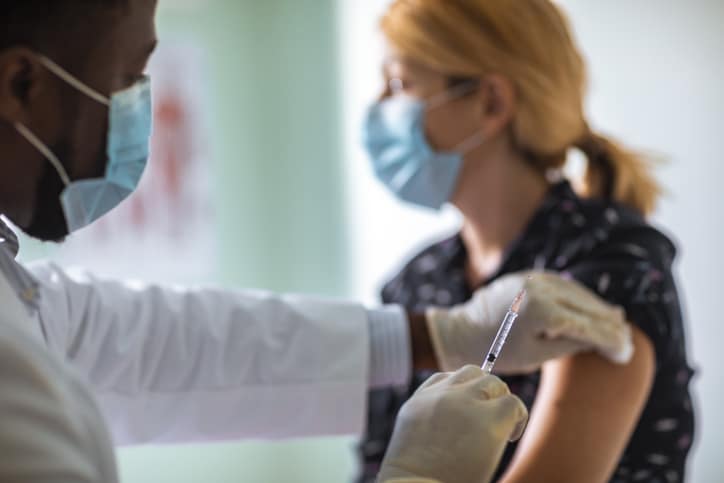Almost three in ten Australians (up to 29%) reported being uncertain about receiving a COVID-19 jab once a vaccine is available, according to an Australian National University (ANU) study.
The same survey found 7% of over 2,000 respondents would probably not get the vaccination, while 6% said they definitely would not.
Study co-author, ANU Associate Professor Ben Edwards, said the first-of-its kind study was important in identifying which Australian groups would look to be vaccinated.
“Overall, there are significant levels of vaccine hesitancy or resistance across Australian society,” he said.
“We found females, those living in disadvantaged areas, those who reported that risks of COVID-19 were overstated, and those who had more populist views and higher levels of religiosity were more likely to be hesitant or resistant to a vaccine.
“We were asking people in August and there wasn’t a safe and effective vaccine available and we were asking people a hypothetical question. It’s important to keep that in mind with the results.”
The study also found those with higher levels of social distancing, who downloaded the COVID-Safe app and who have more confidence in government were more likely to intend to get the vaccination.
The 6% of people who responded to definitely not getting the vaccination correlated closely with the percentage of Australians who won’t get their kids vaccinated.
Professor Edwards said results from the study could be used to create more targeted health promotion and messaging once a COVID-19 vaccination is available.
“I think the main strategy is around health promotion for those groups of individuals who are likely to be far less likely to want to get vaccinated – more intensive work is needed,” he said.
“People who have high levels of religion are less likely so it might be that faith leaders could be particularly important in encouraging people to get vaccinated. This is not just about your individual safety but that of the wider community.”
However, more than half of Australians (58.5%) said they would definitely get a COVID-19 vaccination once it is available.
Professor Edwards also said researchers hoped to follow up with respondents in the future, once a vaccine is introduced.
For more news:
- ‘I feel my stomach turning’: Mental health challenges remain for bushfire-affected communities
- Cocaine, cash and firearms seized in Ngunnawal
- NSW man charged over indecent assault at nursing home
- Garage Sale Trail, Canberra’s big weekend of bargain hunting
- New directions in place for travel to ACT from South Australia
- First of Qantas’ new domestic routes takes off from CBR



